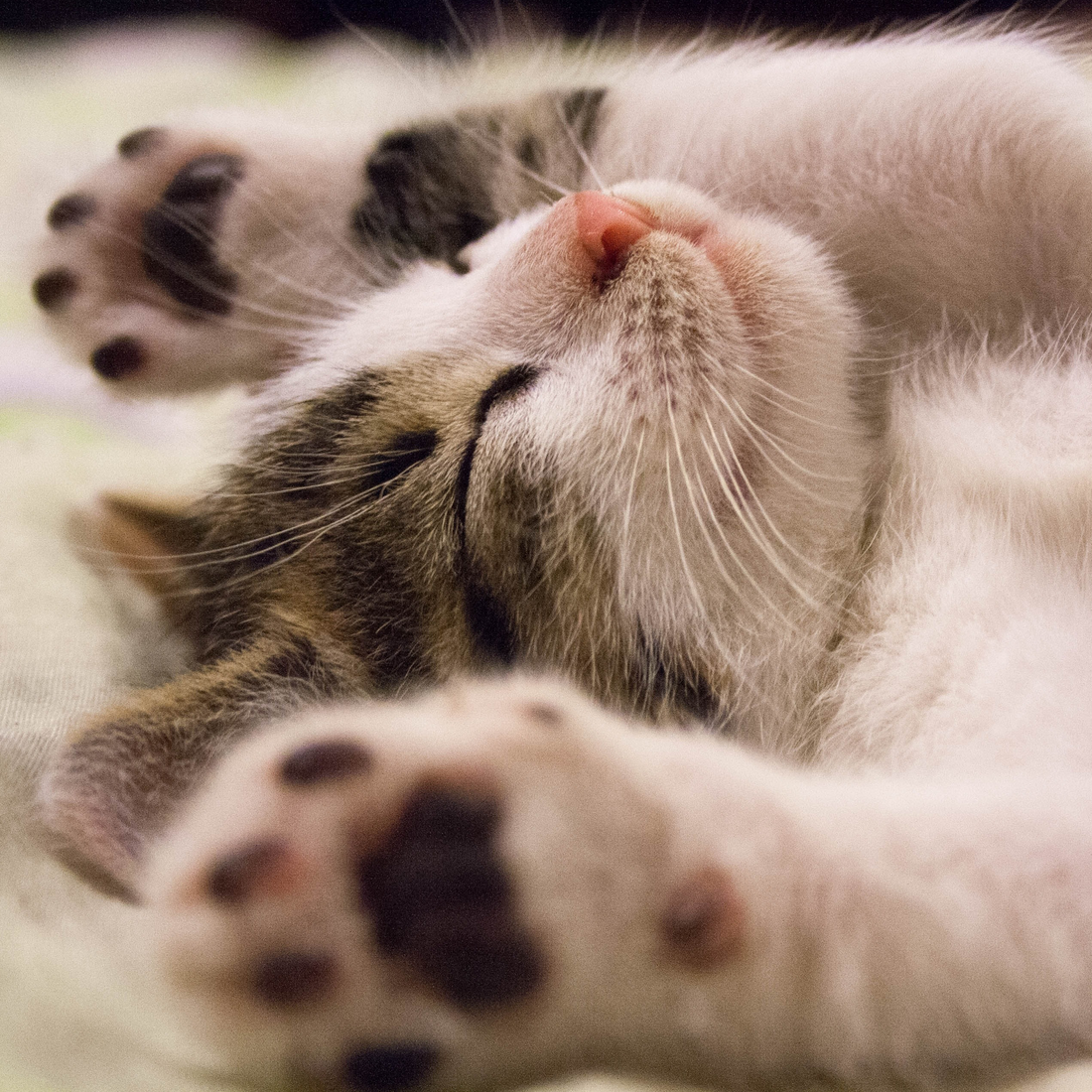
Safely Using Essential Oils with Cats
Cat owners: Are you thinking of using essential oils in your home or yard?
If so, it’s important to keep your cat’s safety in mind. The last thing you want is to put Fluffy in danger when it can be avoided.
Here are some tips for safe essential oils use around cats.
We love the positive effects and health benefits that essential oils provide, however, pet parents need to be aware that certain essential oils may not be safe for our feline friends. Essential oils have toxic effects on cats and may cause serious damage such as muscle weakness, watery nose, and burning sensation. Severe cases are respiratory problems, liver damage, chemical burns, and more.
That doesn’t mean you have to miss out on the potential benefits of essential oils, it just means you need to be careful about where and how you use them in order to avoid getting them in your cat’s fur. It might mean you need to find different ways to make the most out of oils to avoid harming our beloved household pets. Some oils such as peppermint oil should never be used around the proximity of cats. Read our following list to find out which essential oils to avoid if you have cats.
If you notice your cat having a negative reaction or symptoms of essential oil poisoning, such as difficulty breathing after the use of essential oils in the house, it’s best to take it to the veterinary hospital or contact the pet poison helpline as soon as possible.
Avoid diffusing essential oils around your kitty. Although essential oils can be unsafe for any pet when they are not used carefully, cats are particularly more prone to health problems as a result of essential oils. Cats cannot properly metabolize essential oils. Therefore, it can have dangerous repercussions.
So, how can you safely diffuse essential oils if you have a cat? Your best bet is to diffuse them using essential oil diffusers. If you have an indoor/outdoor cat, you might also choose to diffuse essential oils while your cat is outdoors. It is also important to use only small amounts of essential oils, and if you are diffusing in a small space we recommend opening the windows to let fresh air in.
Never put essential oils in your cat’s food or water. In addition to not inhaling essential oils, your cat should not consume them, either. This also means that it’s best to avoid cleaning their food and water bowls with essential oils. If you use cleaning household products made with essential oils, you should avoid using them on your cat’s plates.
Dilute essential oils more than usual. If you’re planning to use essential oils throughout your home, it’s a good idea to dilute them even more than you normally would. Low concentrations are safer. Avoid using them in areas of your home where your cat is most likely to come into contact with them, such as where they sleep or in the area where you keep their food.
Keep dangerous essential oils out of reach. It’s important to keep essential oils stored away so that Tigger won’t get into them, but our cats are known to get into mischief. Avoid leaving your essential oils on countertops or anywhere they can be knocked over. Use extreme caution when storing essential oils – the best way is to store them away in a hard-to-reach spot.
WHICH ESSENTIAL OILS ARE TOXIC TO CATS?
Although it’s best to prevent your cat from coming into contact with any essential oil, certain essential oils can be harmful or even deadly if your fur baby is exposed to them. Sometimes, just a couple of licks of a product with these toxic oils is enough to cause health issues. Get your cat medical treatment as soon as you notice any issues.
Some of the essential oils which are not safe to use around or on your kitty include…
- cinnamon
- clove
- birch
- peppermint
- wintergreen
- juniper
- garlic
- mustard
- thyme
- orange
All citrus oils should also be avoided.
However, this is not a full list, so it’s important to do your research ahead of time. You may not notice these
These are just some tips on safely using essential oils with cats.
While this can be challenging for pet owners, it can be done. If you’re ever in doubt about what you should or should not do, be sure to contact veterinary professionals.
Author by Brittany Kelly